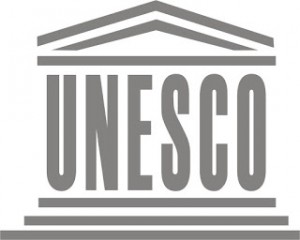I’m not holding my breath on this one, as it is not the first time [1] that I have heard this, but the UK Minister of Culture John Whittingdale [2] says that the UK will introduce legislation to ratify the 1954 Hague Convention for the Protection of Cultural Property in the Event of Armed Conflict [3].
For many years now [4], various excuses have been given for not ratifying the treaty, despite pressure from archaeologists, NGOs and many within Parliament.
The current status, although not correctly reported in many news sources, is that the UK signed the convention in 1954, but has yet to ratify it. This groups us with Ireland, Andora and the Phillipines, ass all other countries that signed were also happy to ratify it.
The current impetus to finally ratify this document is no doubt related to the press coverage of the actions of ISIS [5] in Syria and Northen Iraq. One wonders though why the looting following the deposing of Saddam Hussein in the second Gulf War (or many other similar cases prior to that) was not enough to convince the UK of the importance of the document.
It is a step in the right direction, but there are still many more steps that ought to be taken – not least ratifying the 1970 UNESCO Convention on the Means of Prohibiting and Preventing the Illicit Import, Export and Transfer of Ownership of Cultural Property [6] and the 1995 UNIDROIT Convention on Stolen or Illegally Exported Cultural Objects [7]
Claims are sometimes thrown about, that the reason for not ratifying was that it would help facilitate the return of the Parthenon Marbles to Greece, although I have never been entirely certain that this was the case. I am assuming that the government (which is opposed to the return of the Marbles) will have looked into the legalities of this particular aspect in detail already.
From:
Guardian [9]
Britain signs convention on protecting treasures in war zones
Toby Helm
Sunday 21 June 2015 00.05 BSTIt’s come years late, but the culture secretary is to pledge the UK to helping save historic and artistic artefacts under threat in conflict-torn countries
Britain is to end years of indecision by ratifying an international agreement aimed at preventing the loss of cultural and historic artefacts in conflict zones, amid growing outrage at the destruction by Isis militants of ancient sites in Iraq and Syria.
The culture secretary, John Whittingdale, is to introduce legislation that will finally sign the UK up to the 1954 Hague Convention, set up after the second world war to protect archaeological and historical sites, works of art, manuscripts, books and other objects.About 115 countries have ratified the convention but over the years the UK government has cited a range of reasons for not following suit, including lack of parliamentary time and a belief that this is not an effective way to protect such treasures. One concern is believed to have been that ratification might leave the country open to renewed pressure to return the Elgin marbles to Greece, although there is nothing in the convention that would bind the UK to do so.
Whittingdale also announced that ministers would set up a “cultural protection fund” to help preserve cultural heritage in potential or existing conflict zones, and help with the recovery of artefacts. He is to convene a summit of senior government figures and cultural leaders from the British Museum, the V&A, the British Council and other key organisations – such as Unesco and the Red Cross – to advise on how to proceed.
In April one of the country’s foremost archaeologists, Lord Renfrew of Kaimsthorn, a Cambridge academic, said it was outrageous that the government was “dithering” over ratification at a time when Isis was threatening some of the world’s top cultural treasures.
The moves were welcomed by the director of the British Museum, Neil MacGregor, as “an important step towards safeguarding the world’s cultural property at risk in conflict zones”.
He added that the museum was developing, with colleagues in Iraq, a programme to establish a specialist corps of rescue archaeologists in the country.
“It is important to start this training now, as rescue archaeology will be essential as soon as it is once again possible to visit the key sites we believe have been damaged and to plan their recovery.”
While Isis has claimed responsibility for the destruction of artefacts in Mosul museum, and reports indicate that they were responsible for the bulldozing and looting of the historic sites of Nimrud and Hatra, the full extent of the destruction is not yet known, as archaeologists have not been granted access to the sites.
Last month, Islamic State group fighters advanced on the ancient ruins at Palmyra, raising fears that the Syrian world heritage site could face destruction of the kind already wreaked in Iraq.
Whittingdale said last night: “While the UK’s priority will continue to be the human cost of these horrific conflicts, the UK must also do what we can to prevent any further cultural destruction.The loss of a country’s heritage threatens its very identity. The knowledge and expertise of the experts in our cultural institutions makes us uniquely qualified to help. I believe that the UK therefore has a vital responsibility to support cultural protection overseas.”The Department for Culture Media and Sport said countries that were party to the convention were “required to respect cultural property situated within the territory of other parties by not attacking it, and to respect cultural property within their own territory by not using it for purposes which are likely to expose it to destruction or damage during armed conflict.”
